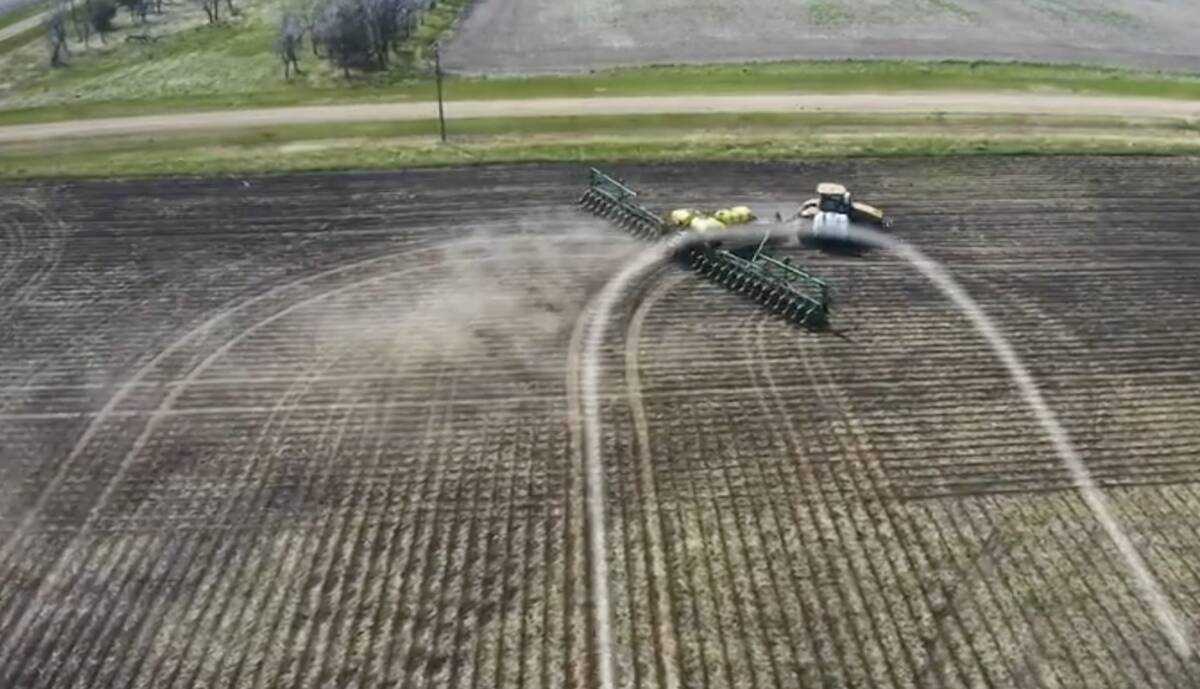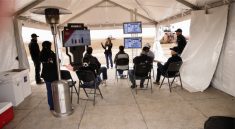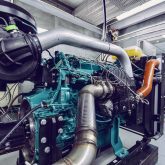It’s a very, very big ship that Scott Wine has taken the wheel of, so earlier this fall, Country Guide sought an opportunity to interview the new CEO of CNH Industrial, the parent company of Case IH and New Holland. Wine took over last January, so he’s got his feet under him now and we wanted to know, where is he going to steer the farm machinery giant?
Q: The ag machinery market has been strong so far in 2021, although producers in many regions have experienced lower than expected crop yields. What do you see ahead?
Scott Wine: I think the markets seem to generally have a lot of strength. Farm income is up, but there have been a few instances around the world where crop production hasn’t been as robust as it could or should have been. Our order books are really full through much of 2022, so I think the setup is there for this to continue for a while.
Read Also

Are farmers ready for the digital ag revolution?
How farmers are using technology to remain competitive, find opportunities and meet challenges.
I’m always a worrywart, with all the mistakes the government is making with spending too much money. All the capacity people are building can lead into a good market becoming a bad market. So we’re going to try to be as agile as we can. But certainly the next 12 to 18 months appear to be pretty good if we can manage our supply chain.
Q: What types of R&D will you focus on to meet that future demand?
Scott Wine: One thing we do know is there won’t be a tremendous increase in tillable acreage in the world, but there’s going to be increased demand for food because there will be more mouths to feed. And that just means you have to deliver more productivity and yield from the farmland that exists. We offer a lot of those solutions through precision ag. Some of the combine technology that we have is as good as anything in the industry. We’re especially strong in specialty harvesting and continue to bring out new technology offerings.
And then we have the recent acquisition of Raven (Technologies), which puts us in a position, whether it’s precision ag or autonomy, to move into an industry-leading position. It’s not assured, but it does put us in a position to get there.
Q: You mentioned the Raven acquisition. Trimble, a competing technology firm, was your digital partner. Will the acquisition affect that partnership at all?
Scott Wine: I think there’s immense opportunities for us, Raven and Trimble to work together. For me, this is about bringing the best solutions for our farmers and growers. Obviously we will leverage the Raven acquisition after we spent so much money on it, but we think Trimble can and needs to be a very important part of our future.
Q: Raven recently acquired the DOT Technologies’ autonomous seed drill. And the company also has its autonomous grain cart system in development, both of which were expected to be released commercially in the near future. Will either of those systems appear under the Case IH or New Holland brands?

Scott Wine: We’re evaluating that right now. We’re going to continue leveraging the Raven brand to customers and dealers. It’s very strong. They really appreciate what Raven has done and continues to do in bringing precision tools to the industry. So I don’t think that will change.
Much of the DOT platform was really, really good at advancing autonomy. But at the same time it was requiring a complete shift in the types of equipment that farmers buy. So you’re creating a market, not just a top technology. Because they’re now part of Case IH and New Holland, we don’t necessarily need to create a new (branding) platform for it.
So I think we’re going to prioritize things differently in a way that will allow us to leverage both of our brands, but put Raven Technology, whether it’s precision or autonomy, across our platform.
Q: Do you have an idea of when Raven’s new systems will be commercially available?
Scott Wine: I do have an idea, but I won’t say (laughs). But I will tell you it won’t be as long as you probably think. As soon as we consummated the agreement that we would acquire Raven, the team started working on certain products. It won’t be terribly long.
Q: A few years ago both CNH brands displayed concept autonomous tractors. Case IH showed a cab-less Magnum, but NH used a regular T7 tractor with the capability to operate autonomously or be operator driven. Do you think the NH tractor that blends autonomy into existing equipment will be the way the industry gets autonomy into the field first for the majority of producers?
Scott Wine: I do.
Q: So will both CNH brands focus on that approach to autonomy in future R&D?
Scott Wine: What we try to do in everything we do is try to figure out what customers need and want and find the best way for us to deliver that for them. If it’s a big cash-crop customer in the Plains that wants to operate 11 combines at a time, then we’re going to figure out an autonomous solution that allows them to do that with minimum labour.
If it’s a specialty farmer in the Shenandoah Valley in Virginia, where I’m from, they probably don’t want that same level of autonomy, but they might want some of the precision tools so they can farm their small farm more efficiently.
Q: Do you feel a strong push from customers that autonomy is something they really want to have as soon as possible?
Scott Wine: I’ve tried to get out and talk to farmers and dealers around the country. There are a handful that would take it as soon as I can give it to them, and there’s a handful that don’t care at all about it. So it really depends on where you’re operating. But the big cash-crop customers absolutely will take it as soon as we can get it to them.
Q: NH has made an investment in the California-based electric utility tractor builder Monarch. Do you see electric drive becoming an important technology, especially in the utility and compact utility market?
Scott Wine: I think you can look at the automotive space and all the predictions that were made about electrification that were all about a decade (out). It’s finally starting to ramp up a little bit. But there was certainly a promise a decade ago that this was going to happen much faster. Our (ag) industry is going to lag behind somewhat. I think it will be a slow ramp-up. But like autonomy, there’ll be certain customers that really want it.
We’re also looking at methane, carbon-negative methane solutions. We’re going to look at a lot of different powertrain solutions. We want to be ready for electric if the inflection point comes, but we’re not going to spend a billion dollars on electrification like you see the automotive guys doing.
Q: There has been some level of general technology and design integration between the Case IH and New Holland brands. Will that continue to increase in the future, or is it important to keep each brand offering relatively unique and independent equipment designs to the market?
Scott Wine: Historically, the charter each of those brands (under CNH ownership) was to compete for market share, not only with Deere and AGCO but with each other. My philosophy is a bit different. I’m saying we’ve got two very strong global brands, how can we best leverage them to win the maximum amount of market share in the global market? I think that will tell you we are likely to make more differentiated products than more similar products.
Q: New Holland has its construction equipment products integrated with its ag equipment line; however, Case IH does not. Will that change?
Scott Wine: Probably. We’re (currently) forcing Case IH dealers to buy other people’s construction solutions, which doesn’t make me feel very happy or feel very smart. So, we’ll probably stop doing that.
Q: How do you sum up the current priorities and activities at CNH?
Scott Wine: We’re doing so much, working internally to enable us to be more agile and move faster to provide value solutions to our dealers and customers.
I do think what we’re doing with the Raven acquisition or Monarch (and others), leveraging others to bring great solutions to customers is really a mantra we’re going to have. The fact that we’ve already created this number two position in the global ag market and probably haven’t yet put our best foot forward gives me a lot of confidence in the future.
















